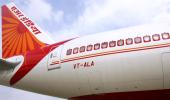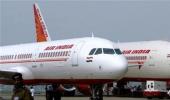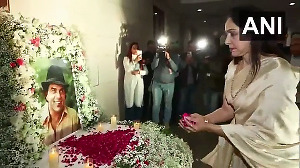The Tatas are rather overwhelmed with some facets of the airline they have discovered, but even more unnerved by what they may not have yet uncovered, reveals Anjuli Bhargava.
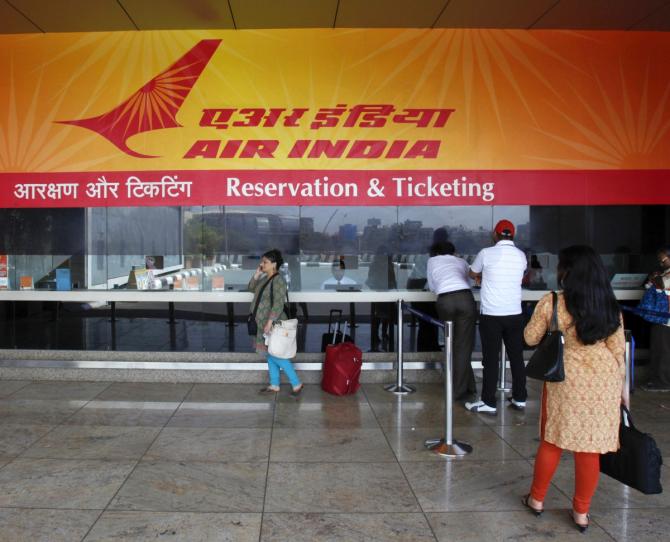
As the sale of the national carrier enters its final phase, let me bring the readers interested in this saga up to speed.
As the divestment secretary confirmed to the media, the Tata group and a consortium led by Spice Jet CEO Ajay Singh have submitted bids for the enterprise value.
By the end of this month, we will have some clarity on the technical and the financial bids.
The two bids are believed to 'competitive' (read, not an Ajay Singh-style Re 1 versus Rs 20,000 crore/Rs 200 billion by the Tata group).
But whatever the final numbers, most expect the national carrier to move into the Tata fold.
When I asked aviation industry senior managers, experts and analysts what they thought Singh's odds were to win Air India, most said zero on a scale of 1 to 10!
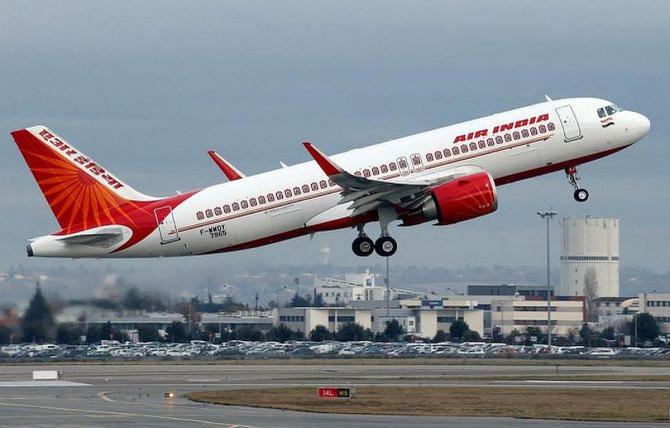
This is mainly because Singh's bid has largely been seen as an attempt to meet the sale conditions of having at least two bidders.
Only the Tatas have done a serious due diligence of the airline.
For months at Airlines House in the capital, the AirAsia India team led by Sunil Bhaskaran was scouring through data, cases, records, archives with a fine-tooth comb.
The team visited many regional offices and had several meetings with almost all departments.
Singh and his consortium -- whoever it comprises -- were not spotted even once at the airline's headquarters; neither did they meet the employees at any level.
A 17-page questionnaire raising many points by this bidder after receiving access to the data room remained unanswered.
Anyone who knows even a little about the sector is aware that Singh has enough and more problems of his own and whatever he may or may not be, he's not stupid enough to commit hara-kiri.
I understand through my sources that the Tatas are rather overwhelmed with some facets of the airline they have discovered, but even more unnerved by what they may not have yet uncovered.
As with many public sector-run organisations, there is almost no one person who has access to all information, or anyone who can be held fully accountable.
Skeletons could tumble out of this cupboard at any point.
So as the privatisation of Air India goes into the final lap, I can confirm it is only a one-horse race.
The second knight-in-shining-armour is a figment of the government's imagination for a host of reasons.
Let me elaborate on these reasons.
One, there is the country's pride to think of. It reflects poorly on the government that even in over 75 years of existence, the airline failed to turn into an asset that many covet (Air India was founded before the country was independent in 1930).
In this lead up to the sale, several times the media had us believe that the carrier was in much demand.
In fact, in March 2018, a news report in Business Standrad itself had claimed that there were at least three clear contenders in the fray: IndiGo, Tata-Singapore Airlines and finally a consortium of Jet Airways, Air France-KLM and US airline Delta. None (barring the Tatas) of this proved true.
Embarrassing to say the least when the bride has far fewer suitors than what the parents expected or hoped for!
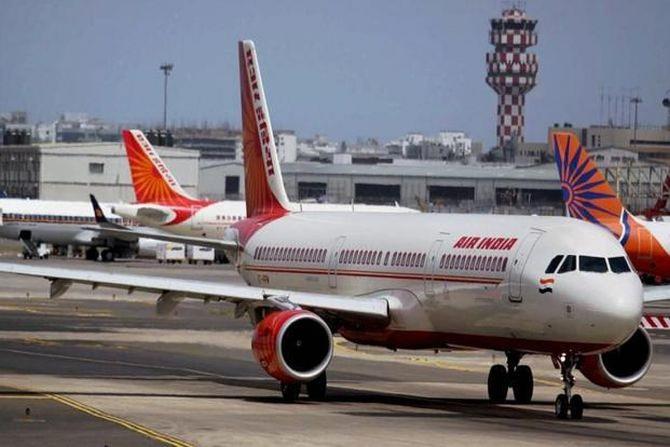
Second, even though everyone in the government is fully aware of the fact that the Tatas would be actually freeing them from a headache and Air India in all honest truth is more of a liability, the government is still keen to extract 'some value'.
This is not petty in-the-moment thinking, but more from a future perspective since deals like this are often judged in retrospect and the government is not keen to be hauled over the coals by the Congress, or other rivals over how it 'handed over the family silver for peanuts&'.
Also, the slots (both at domestic and international airports), some of the aircraft and skilled personnel have significant inherent value.
A third problem -- although the least of the bother as rules are made to be tweaked to suit the authorities -- is the cumbersome government rules that require at least two horses in the race for a deal to pass muster.
Inconvenient questions can be asked subsequently or the final process can even get scuppered unless this charade is kept up to the finishing line.
Meanwhile, the mood at the airline remains sombre and the general air is one of resigned acceptance.
Depending on who you speak to, and despite their individual insecurities, employees seem to have made peace with the sale. Some are even awaiting it eagerly.
Let me end here by saying that as a journalist who has been writing on the sector for a couple of decades, I never expected to ever see a flight take off from Navi Mumbai airport -- it has been under construction for eons -- or the Maharaja sold.
The government seems set to prove me wrong on the latter. A sale now appears imminent.
Feature Presentation: Rajesh Alva/Rediff.com



